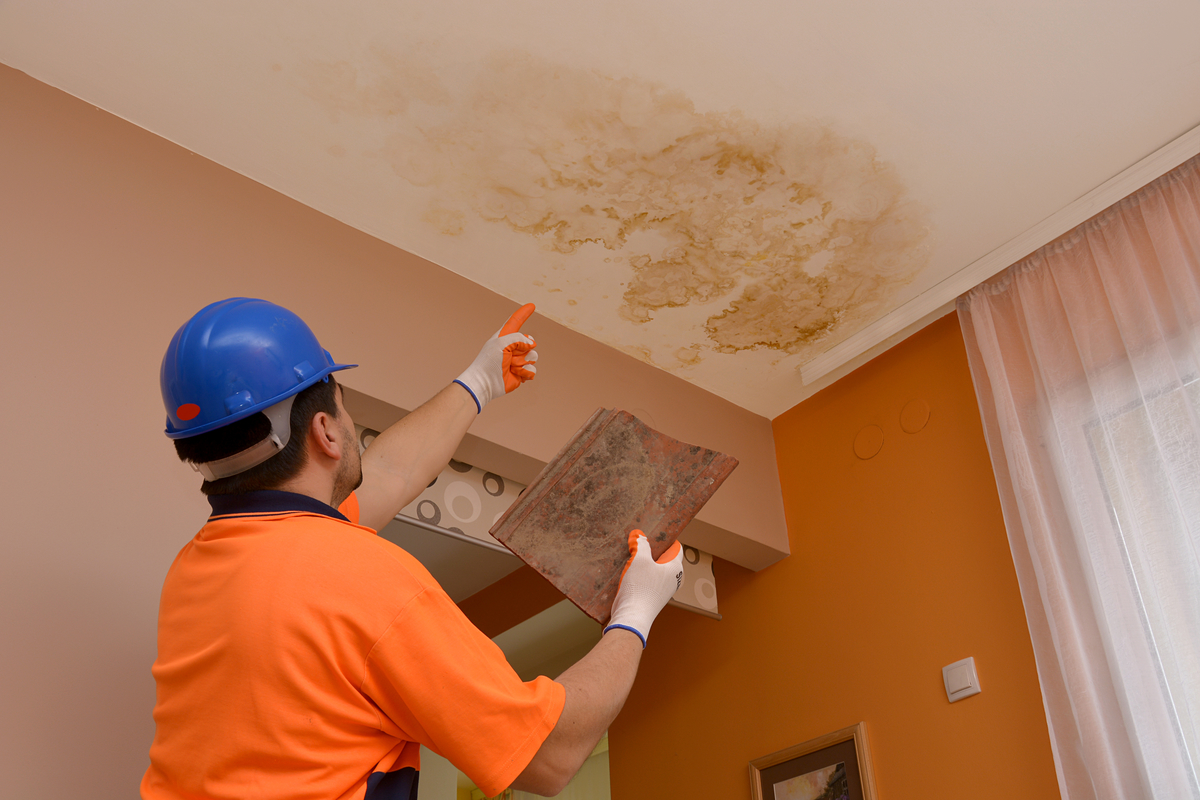Pinpoint What Leads to Water Drips in Your Home
Pinpoint What Leads to Water Drips in Your Home
Blog Article
The writer is making a few great points on the subject of How to detect water leaks in your home in general in this content which follows.

Leakages not just cause waste of water however can additionally trigger unneeded damages to your home and also promote undesirable natural development. Regrettably, water leaks might go undetected because a lot of the pipework in our home is concealed. By looking and comprehending for everyday scenarios that create leakages, you can safeguard your house from future leakages as well as unneeded damage. Today, we will consider 6 leakage creates that might be causing your pipes to leak.
Immediate temperature level changes.
Extreme temperature adjustments in our pipes can create them to expand and also acquire suddenly. This development and contraction may trigger fractures in the pipes, specifically if the temperature are listed below cold.
Corroded water systems
As time goes by, your plumbing system ages and deterioration such as rust may start gnawing the pipelines. This could be the reason for staining or warping on your pipes. This requires an evaluation with your plumber immediately. If our plumbing system is old, think about changing the pipelines given that they go to a higher danger of rust than the newer models.
Malfunctioning Pipe Joints
The point at which your pipelines link is often the weakest link in the waterline. Pipe joints can weaken over time, resulting in water leaks. Sadly, most of pipeline joints are not easily noticeable. If you have noisy pipelines that make ticking or banging noises, particularly when the hot water is activated, your pipe joints are probably under a lot of pressure. It is suggested to have your plumber check your system yearly.
Elbowing in roots
Many water leaks begin outside your house instead of inside it. If you notice an abrupt reduction in water pressure, claim in your tap, take time to head out and analyze your lawn. You may discover wet spots or sinkholes in your backyard, and that could indicate that tree origins are getting into water lines triggering water to seep out. You can have your plumber check for intrusion, especially if you have trees or bushes near your home.
Poor Water Connectors
At times, a leak can be caused by loosened tubes and pipelines that supply your devices. Most of the time, moving is what creates the loose water Connections. You could discover in the case of a cleaning device, a tube may spring a leak due to trembling during the spin cycle. In case of a water links leak, you may notice water running directly from the supply line or pools around your appliances.
Blocked Drains
Blocked drains pipes may be aggravating and also inconveniencing, yet they can often end up triggering an overflow causing rupture pipes. Maintain removing any products that may drop your drains that might block them to stay clear of such hassles.
All the above are root causes of leaks but not all water leaks result from plumbing leakages; some leakages could come from roofing system leakages. All leakages should be fixed promptly to prevent water damage.
Leakages not just create waste of water yet can likewise trigger unneeded damages to your house and also promote unwanted natural development. By looking as well as comprehending for daily circumstances that cause leaks, you can safeguard your home from future leaks and also unnecessary damages. Today, we will look at six leakage triggers that might be creating your pipelines to trickle.
At times, a leakage can be created by loosened tubes as well as pipelines that supply your devices. In instance of a water links leak, you might see water running directly from the supply line or puddles around your home appliances.
How To Check For Water Leak In Your Home
How To Check for Leaks
The average household's leaks can account for nearly 10,000 gallons of water wasted every year and ten percent of homes have leaks that waste 90 gallons or more per day. Common types of leaks found in the home are worn toilet flappers, dripping faucets, and other leaking valves. These types of leaks are often easy to fix, requiring only a few tools and hardware that can pay for themselves in water savings. Fixing easily corrected household water leaks can save homeowners about 10 percent on their water bills.
To check for leaks in your home, you first need to determine whether you're wasting water and then identify the source of the leak. Here are some tips for finding leaks:
Take a look at your water usage during a colder month, such as January or February. If a family of four exceeds 12,000 gallons per month, there are serious leaks.
Check your water meter before and after a two-hour period when no water is being used. If the meter changes at all, you probably have a leak.
Identify toilet leaks by placing a drop of food coloring in the toilet tank. If any color shows up in the bowl after 10 minutes, you have a leak. (Be sure to flush immediately after the experiment to avoid staining the tank.)
Examine faucet gaskets and pipe fittings for any water on the outside of the pipe to check for surface leaks.
Undetected water leaks can happen without the home or business owner even realizing. If you suspect a water leak, but not able to find the source. It is time to contact a professional water leak detection service, The Leak Doctor.
How To Find a Water Leak In Your Home
https://www.leakdoctor.com/blog/How-To-Check-For-Water-Leak-In-Your-Home_AE197.html

We had been shown that editorial about How to detect water leaks in your home from an acquaintance on a different web property. Enjoyed our content? Please share it. Help another person check it out. I praise you for your time. Kindly visit our website back soon.
24/7 service for plumbing emergencies. Report this page